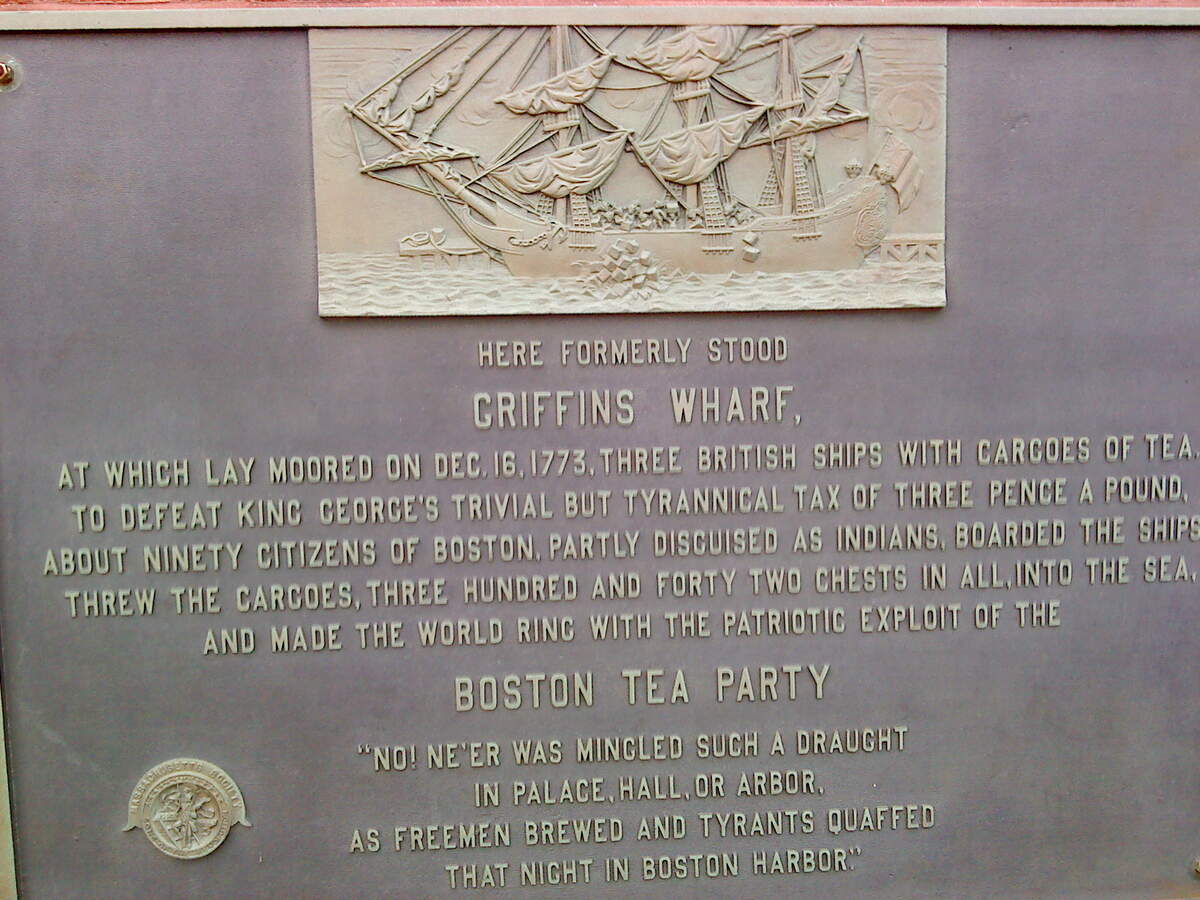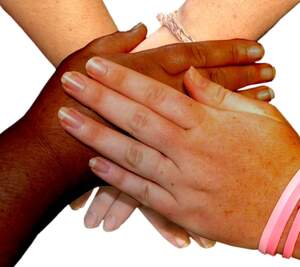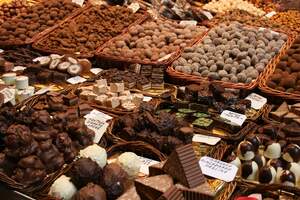

Boston Tea Party Day
Observed
annually on December 16th
Dates
Tags
Food & Drink
Government & Politics
History & Culture
Hashtags
Sources
There were numerous factors that converged to create an environment that was ripe for an event like the Boston Tea Party to take place, which occurred on today's date in 1773. Some of these included the popularity of tea in the colonies, British debt, acts of Parliament that taxed colonists, the Boston Massacre, and the propping up of a British tea company. The Boston Tea Party can be seen as a tipping point that spurred the revolutionary movement forward, which ultimately allowed for the creation of the United States. It is because of its importance to the formation of the country that we mark Boston Tea Party Day.
Although Britain had been victorious in the Seven Years' War (1756-1763), they had accumulated a great national debt and looked to the American colonies for revenue. Parliament instituted taxes on the colonies, the first being the Stamp Act of 1765, which required colonists to pay a tax on printed paper such as newspapers, business cards, and legal documents. Colonists argued that only their representatives in the colonies should have the power to tax them, and that "taxation without representation" was unjust. The Stamp Act was repealed the following year, but the Townshend Acts of 1767 created even more taxes than the Stamp Act, placing them on items such as paper, paint, glass, and tea. The revenue for these taxes was to pay for the salaries of the royal colonial governors. Colonists once again bristled at the idea of being taxed without representation, and they organized boycotts of the taxed goods. Because of this pressure, in April 1770, all of the Townshend Acts except the tax on tea were repealed. The tax on tea was kept as a symbol of Parliament's power and right to levy a tax on the colonies.
Another incident occurred the month before the Townshend Acts were repealed which also raised the discontent of colonists: the Boston Massacre. Colonists had been irritated that British troops were patrolling their streets, and this pent up anger took the form of action when a mob of colonists threw snowballs at a British sentinel who was guarding the Boston Customs House. British reinforcements arrived and the colonists were fired on. Five lost their lives and six more were injured. The colonial frustration that sparked the Boston Massacre only intensified following it.
Colonists drank about 1.2 million pounds of tea a year. With the repeal of the Townshend Acts, boycotting of British tea abated, although some colonists avoided it and drank smuggled Dutch tea instead. Everything changed after Parliament passed the Tea Act in May 1773. This act was created to save the faltering British East India Tea Company and to turn it into a monopoly in the colonies; the act wasn't designed to raise revenue, but to bail out the tea company, which was valuable to Britain's economy. It allowed the British East India Company to sell tea cheaper than anyone else because it stipulated that the tea didn't need to land in England on its way to the colonies, where an additional tax would have had to have been paid. The tea was still taxed at colonial ports, however. Overall, though, the Tea Act lowered the price of tea from the British East India Company, and the company was able to monopolize the market.
Some thought the Tea Act was made as a way to get colonists to accept and support the idea that Parliament could tax colonists. Even though the price of tea was now cheaper for colonists, they were not supportive of the Tea Act. They had never accepted the right of Britain to place duties on tea, and the act reinvigorated their opposition. The act revived the boycotting of tea, and more people began to smuggle Dutch tea, although it was actually more expensive than the British tea. Two of the most prominent tea smugglers were John Hancock and Samuel Adams. The act negatively affected colonial merchants and these merchants and patriot groups like the Sons of Liberty found themselves aligned in opposition to Britain in a way they hadn't prior. Colonists continued to protest against the tea tax and against British control, and in some ports, they were able to force ships with tea from unloading their cargo.
Then, on the night of December 16, 1773, the first major act of resistance to British rule took place, when the Boston Tea Party occurred at Griffin's Wharf in Boston Harbor. The Sons of Liberty, formed of colonial merchants and tradesmen and comprised of noteworthy members such as Samuel Adams, John Hancock, Paul Revere, and Patrick Henry, had been founded to protest taxation, particularly the Stamp Act. They had spoken against Parliament in their meetings, and when the Dartmouth, a ship filled with tea from the British East India Company, came to Griffin's Wharf in 1773, they protested. By mid-December, the ship had been joined by Beaver and Eleanor, which also carried tea. On the morning of December 16, colonists came together in the area around the wharf, and a meeting was held at the Old South Meeting House. They agreed not to pay any taxes on the tea, or to allow it to be unloaded, stored, sold, or used. At the same time, Governor Thomas Hutchinson said the ships could not return to Britain, the tea tariff had to be paid, and that the tea had to be unloaded. Colonists refused all of these demands.
At least 60—and perhaps more than 100—Massachusetts colonists, believed to be part of the Sons of Liberty, disguised themselves as Mohawk American Indians, boarded the ships and dumped 342 crates or chests of tea into Boston Harbor. They split the crates with their tomahawks so that the tea would be exposed when it hit the water. After almost three hours, they had emptied more than 90,000 pounds of tea into the harbor. In today's dollars, the tea would be valued at about $1,000,000. No other damage was done to the ships or other property. It is not known who was all involved, but the event, which became known as the Boston Tea Party, is believed to have been led by Samuel Adams and organized by John Hancock. Most participants were under the age of 40, and some were teenagers. Only one person was arrested and imprisoned: Francis Akeley. Not all of the Founding Fathers were happy with what happened in Boston. George Washington and Benjamin Franklin were not pleased by it, and Franklin believed that the British East India Company should be reimbursed.
In response to the Boston Tea Party, Parliament passed the Coercive Acts, which became known to the colonists as the Intolerable Acts. Britain passed them in hopes that they would keep the colonies from uniting. These acts did a number of things: they closed Boston Harbor until the tea was paid for, they ended the Massachusetts Constitution and repealed Massachusetts' colonial charter, they halted the free elections of town officials in Massachusetts, formal British rule started in Massachusetts and General Thomas Gage—the commander of British forces in North America—was appointed governor, judicial authority in the colonies was moved to Britain, colonists were required to quarter British troops when asked to do so, and French-Canadian Catholics received the freedom of worship, angering many Protestant colonists. Instead of dissuading colonists from uniting, the Intolerable Acts spurred the revolutionary movement. Colonists sent aid to Massachusetts, those with more moderate views became more sympathetic to those held by radicals, and colonists organized the First Continental Congress.
On September 5, 1774, the First Continental Congress convened, when elected delegates from all the colonies except Georgia met in Carpenters' Hall in Philadelphia. They wrote the Declaration of Resolves over the following month, which censured Britain for passing the Intolerable Acts and called for their appeal, established a boycott of British goods, declared that the colonies had the right to govern themselves independently, and called for a colonial militia. Less than a year later, the Revolutionary War began. There are many events that factored into the colonial break from Britain and the fight for a new country, but the Boston Tea Party played a large role in putting the colonists on an inextricable path to revolution.
How to Observe Boston Tea Party Day
The following are some ideas on how to to mark the day:
- Visit the Boston Tea Party Ship and Museum and the Old South Meeting House. Boston Tea Party Reenactments are often held at these locations on today's anniversary.
- Stop at the official Boston Tea Party marker at the corner of Congress and Purchase streets.
- Read a book about the Boston Tea Party.
- Host a party and drink some tea, or dump whatever tea you have into water.





















